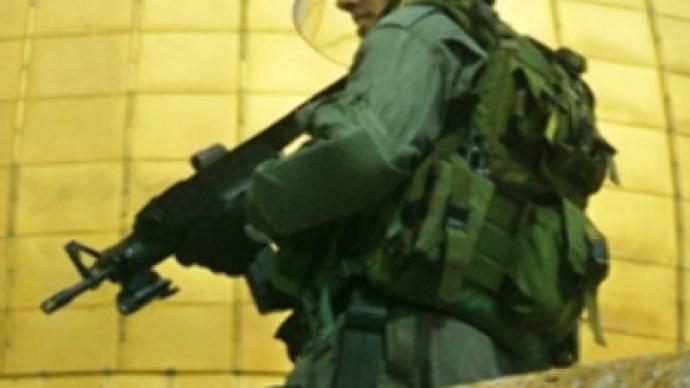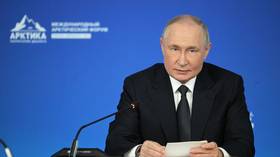Indian forces too slow in Mumbai – Israeli experts

The confusion that marked the three days of fighting in Mumbai’s hotels stemmed in part from the inability of security forces to distinguish between shots fired by their own men and those from terrorists flitting from floor to floor.
That’s the assessment from Israeli Defense Minister Ehud Barak, himself one of Israel’s most renowned commandos. “The security forces heard each other firing in the corridors and couldn’t tell where the terrorists were,” he said in an interview on Israel Television.
Barak said his remarks were not a criticism of the Indian security forces’ tactics but an explanation of the prolonged nature of the fight in Mumbai.
He said that during the fighting he had offered Indian officials “every assistance imaginable” but declined to give details. The Israeli media reported that the Israeli Defense Ministry had examined the possibility of dispatching commandos to rescue Israelis trapped in the Chabad religious center which had been captured by the terrorists.
The idea was dropped, however, apparently after India indicated it would reject such an offer. Israel has contingency plans for rescuing its hostages abroad. It famously put them into action in Uganda in 1976 in the raid on Entebbe to free hijacked airline passengers. However, in the Mumbai case delicate considerations of national sovereignty would have to be factored in.
Israeli officers were on hand to observe the final stages of the fight for the Chabad center from adjacent buildings and to draw operational lessons.
The newspaper Ma’ariv reported that intelligence officers from Israel, Britain, India and the United States were cooperating closely in an attempt to analyze the methods and motives behind the Mumbai attack.
Barak said that it was his understanding that the perpetrators were Indians with “ties to neighboring countries”. He said he believed some 30-40 men were involved in the attack, breaking up into seven or eight squads. In 1973, Barak led a commando squad into the heart of Beirut to kill Fatah leaders after landing by rubber boat from a mother ship, as did the Mumbai raiders last week.
Israel’s ambassador to India, Mark Sofer, said he had “no criticism whatsoever” of the way the Indian forces had carried out the rescue operation at the Chabad center. “We have enjoyed full cooperation at every level,” he added.
However, the defense correspondent of the Israeli newspaper Ha’aretz, Yossi Melman, wrote over the weekend that the first forces sent to the scene were inexperienced local police, who suffered many casualties. “In the first several hours, the response of the Indian authorities was slow, confused and inefficient. It took some time before military and security authorities realized the scope of the attack and deployed skilled security forces,” the paper said.
Nine Jewish people were found dead in the Chabad center, seven of them Israelis, including the center’s head, Rabbi Gavriel Noach Holtzberg, 29, and his wife, Rivkah, 28. Two women were bound before being executed. An Israeli returning from Mumbai said that another Israeli had escaped from the center by shimmying down a drainpipe from five floors up. But he was badly beaten by police who believed he was a terrorist, the man said.
Since the assassination of the military chief of Hezbollah, Imad Mughinyeh, in Damascus last February, Israel has been braced for a major retaliation somewhere in the world. Several serious attempts have been foiled, say security officials, who offered no details.
It is not clear if the attack on the Chabad center was linked to the Mughinyeh killing. There have been suggestions that the center was targeted because of strengthening ties between India and Israel, including the sale by Israel of advanced military equipment.
Danny Yatom, a former head of Mossad, Israel’s counter-intelligence force, said the Mombai attack probably involved hundreds of persons in various stages and that intelligence organizations would now attempt to pick up tracks that must have been left. “It’s been clear since September 11,” he said, “that without very deep cooperation among the world’s intelligence organizations it will be impossible to wage an effective fight against terrorists because terrorism has become a global phenomenon.”
A former commander of the Israeli police’s counter-terror unit, David Tzur, said a terrorist takeover of a hotel was “the nightmare of every counter-terror unit” because of the difficulty of securing such a large target. He said, however, the 12-hour battle to take the smaller Chabad center was “unreasonable”. Tzur said: “There’s no chance in the world that captives will survive an incident that doesn’t end within minutes of the break-in.”
A similar view was expressed by Col. Lior Lotan, a former commando officer. “When you’re rescuing captives you enter fast with maximum force and try to reach the hostages as quickly as possible, even at the price of casualties,” he said. “Here, they operated much more cautiously.” The security experts noted that the ground floor door to the center was blown in before Indian commandos had landed on the roof of the building by helicopter. For maximum impact, they said, the actions should have occurred simultaneously.
Abraham Rabinovich for RT













